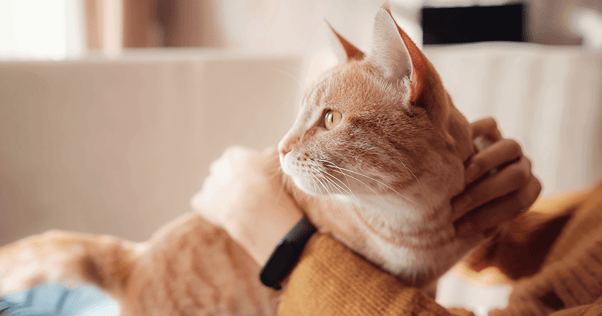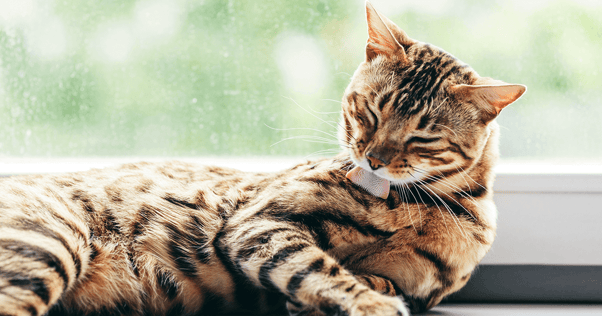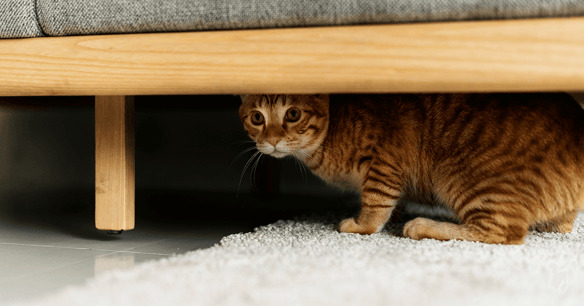How Do I Know If My Cat Is Scared of Fireworks?
It feels like summer was only yesterday, yet somehow New Year’s Eve is already just round the corner. For our beloved pets, this usually means just one thing: flashing lights, colourful displays, and a lot of loud bangs and crashing noises. Does that sound like your cat’s worst nightmare? You wouldn’t be the only pet-parent to think so! A fear of fireworks is a common trait among cats, and with that in mind, it’s a good idea to be prepared ahead of time.
Learning to recognize cat body language and understand cat behaviour, such as when they’re feeling scared or anxious, enables us to provide support when it's needed. Here’s a guide for recognizing when a cat is scared of fireworks.
Understanding A Cat’s Senses
But first things first, it will help to understand how cats perceive the world around us. Cats have incredible auditory senses, with the ability to hear over a wide range of frequencies that elude our human ears. Perhaps due to this incredible sensitivity, any sudden loud noises like those from fireworks often trigger danger warnings in a cat’s mind. This can be particularly disturbing for domesticated pets as they thrive more on routine and predictability.

According to the PDSA’s 2022 Paw Report, 30% of cat owners mentioned their cats being scared of fireworks. However, this statistic is actually believed to be an underestimation. Cats will often hide their fear by physically hiding, making it less evident to cat parents.
Recognizing The Signs Of Cat Anxiety And Fear
So, what aspects of a cat’s body language and behaviour should you look out for? Below, we’ve listed a few of the more common symptoms of a cat that’s scared of fireworks:
- Dilated pupils – A sign of heightened stress.
- Flattened ears – Indicates fear or aggression.
- Restlessness or pacing – Cats may walk around aimlessly, unable to settle down.
- Excessive grooming – A coping mechanism for stress.
- Toileting inside – Somewhere other than in the litter tray.
- Running and hiding – A natural instinct for a frightened cat.
- Eating or drinking less – A cat that is stressed may neglect its meals.
- Avoidance – They may hide away and not interact with you as usual.
If you notice any of these signs, especially around any noises or sounds that scare cats, it’s likely that your cat is suffering from noise-induced stress or cat anxiety. Fortunately, there are steps we can take to help our furry friends through these situations.

How To Help A Frightened Cat
If you’ve noticed that your cat is scared of fireworks in the past, it’s best to consult your vet for advice ahead of this year’s events. They’ll be able to work out how best to support your cat, check they’re healthy, and help them feel less stressed when fireworks are going off. At the same time, there are a number of steps you can take to offer a little extra support:
- Stay indoors – As much as possible, try to ensure your cat is inside before dark, and close any cat flaps and windows to prevent them getting out again. You should also make sure their microchip is up to date with your contact details just in case they do manage to escape.
- Access to safe places – Give your cat access to their favourite hideouts rather than limiting their access to certain rooms around the house. You can make these areas feel extra secure with FELIWAY Optimum. For the best results, we recommend using the pheromone diffuser for a few days beforehand. This can help your cat to feel calm before the firework event starts.
- Distraction techniques – Engage your cat with mentally stimulating toys or give them their favourite treats to divert their attention.
- Block out the fireworks – Draw the curtains or blinds to muffle the sight and sound of the fireworks. To further reduce the noise inside, play soothing music or put on the TV or radio.
- Respect their space – Let your cat decide when they want to come out from their hiding place and interact with you.

Remember, understanding your cat’s behaviour and body language is key to helping them during stressful times such as those dreaded New Year’s Eve firework displays. In these situations, FELIWAY Optimum and FELIWAY Classic can be a big help in reducing symptoms of cat fear and cat anxiety. Either way, the most important thing is to prepare in advance to make the holiday season as stress-free as possible for your feline friend.
Are you interested in learning more about noises that scare cats or want to find more tips on recognizing a cat’s body language? Don’t hesitate to get in touch! We always love sharing our expertise and helping in any way we can. You can also stay informed with all our latest tips and product advice by signing up to our newsletter.
